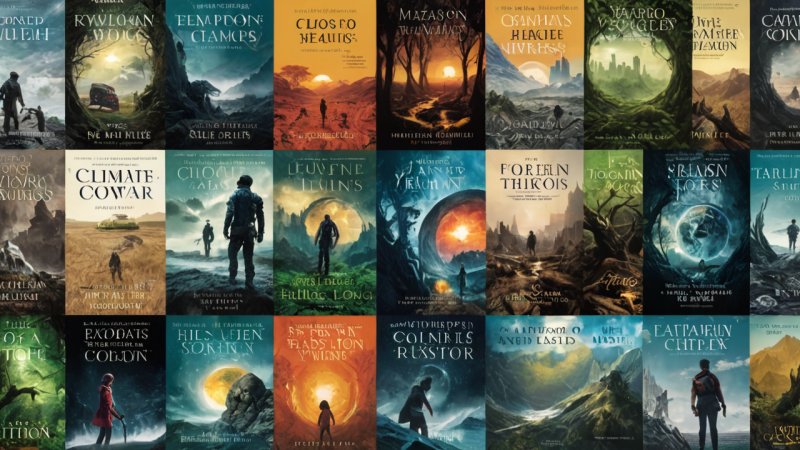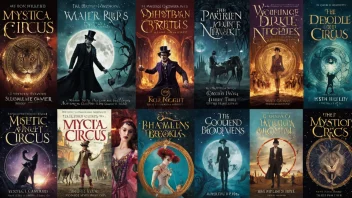Introduction
Climate fiction, or cli-fi, is an emerging genre that explores themes related to climate change and environmental issues through imaginative storytelling. This genre is not only entertaining but also serves as a critical lens through which we can examine the current state of our planet and the potential futures that await us. In this article, we will explore five impactful climate fiction books that are reshaping the science fiction landscape.
1. The Overstory by Richard Powers
The Overstory is a sweeping narrative that intertwines the lives of multiple characters with the life cycles of trees, showcasing the interconnectedness of nature and humanity. Through its rich storytelling, Powers emphasizes the importance of trees in our ecosystem and urges readers to reconsider their relationship with the natural world.
2. New York 2140 by Kim Stanley Robinson
Set in a future where sea levels have risen dramatically, New York 2140 portrays a submerged city and the resilient inhabitants who adapt to their new reality. Robinson skillfully blends speculative technology and social commentary, illustrating both the challenges and opportunities that climate change presents to urban life.
3. Flight Behavior by Barbara Kingsolver
In Flight Behavior, Kingsolver tells the story of a rural Appalachian community grappling with the arrival of a migratory species disrupted by climate change. This novel not only addresses ecological themes but also delves into social issues such as poverty, religion, and cultural conflict, making it a multifaceted exploration of how climate change affects real lives.
4. The Water Knife by Paolo Bacigalupi
The Water Knife is a gripping tale set in a near-future America ravaged by water shortages and climate-related conflicts. Bacigalupi’s dystopian vision serves as a stark reminder of the fragility of our resources and the societal implications of environmental neglect. The novel's thrilling narrative underscores the urgent need for sustainable water practices.
5. The Ministry for the Future by Kim Stanley Robinson
Another remarkable work by Robinson, The Ministry for the Future imagines a global organization created to combat climate change and protect future generations. This ambitious novel tackles a variety of solutions—political, technological, and social—while presenting a hopeful vision of humanity’s potential to unite against a common threat.
Conclusion
Climate fiction is more than just a genre; it is a reflection of our current reality and a call to action. The five books discussed here not only entertain but also provoke thought and inspire change by encouraging readers to engage with the pressing issues of climate change. As we continue to navigate the complexities of our environmental crisis, cli-fi will undoubtedly play a vital role in shaping our understanding and response to the challenges ahead.






